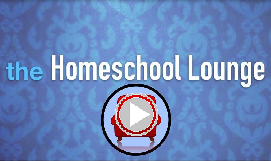Unlocking Uninterrupted Education for All
July has seen a much-awaited response to the question of reopening or closing the schools. With schools closed again for 4 weeks and the academic year extended into 2021, many issues and practical factors remain unaddressed. This article explores how home education can help close the increasing divide of equality in this situation and beyond the pandemic.
The ripple effects of a broken system
The pandemic and the decisions made during this time have burst the long-growing cracks in the school system, revealing in painful detail the limited access to quality resources, internet, funding, adequately trained staff, mobility access, and more. It was an ailing infrastructure at best, ill-equipped the handle the current challenges and changes that are needed.
“The school system is an expensive way to provide education. This creates inequality, making education only accessible to the rich. Government enforced this system by making school attendance compulsory and attempted to compensate for the unequal nature of the school system by introducing tax-funded public schools that should be accessible to all. However, due to the inefficiency of the state, this attempt failed miserably,” says Bouwe van der Eems, chairman of the Pestalozzi Trust (the legal defence organisation for home educators).
The current closure of schools and the extension of the academic year could have the following ripple effects:
- High school learners could lose a year.
- Very few, if any, students will register for tertiary education.
- Primary school learners will lose a year and have to accommodate an additional Gr.1 class.
- Tertiary institutions’ may have to adjust some of their acceptance criteria for learners whose matric examinations were affected.
- The strict sanitary requirements will mean that many schools in low income areas will be unable to meet those requirements and be unable to open, further increasing inequality because the learners in those areas will then be unable to return to those schools, whereas other learners will be able to return and continue their education.
Wanda Rossouw, a homeschooler and social worker in the Northern Cape adds, “The situation is impractical because children who had to attend school every second day, still had to be accommodated in the hostel for the whole week. Many children don’t have mobile phones and data here and so could not do any schoolwork either. In addition, many of the parents are illiterate and unable to help. Children work as helpers in their homes, gathering wood, fetching water, caring for younger siblings and live well below the poverty line. There is a huge need for a better solution for the entire community.”
Home education in contrast
Home education via distance learning, online providers or books provides a solution that address most of the concerns during this pandemic, namely:
- Home educated learners need not lose a whole academic year.
- Many home educated learners actually finish their work in less time compared to school schedules.
- Home educated learners run far less risk of infection and interact in much smaller groups than schools of hundreds or thousands of learners.
- Learners with chronic health conditions and/or special needs are also able to continue their education safely.
- There is no restriction or waiting upon schools to open and provide a service for children to be able to access and continue a quality education.
- Teachers are able to continue providing a valuable service safely as tutors either independently or with a curriculum provider.
- Education is child-centred, rather than a one-size-fits-all approach.
- Parents are able to choose what works best for their family’s situation, resources, budget, the child’s learning style, interests, and needs.
- Home education provides far more options in terms of curriculum, one-on-one attention, methods of teaching and learning, and varied learning experiences.
The short-term solution to resume education
Online education is the fastest solution to the current situation and since many children will not be returning to school when schools reopen (due to lack of funds and other reasons), it makes sense to use technology.
But how do you make it accessible to families with low income who do not have computers, tablets, and high-speed internet? These families rely on public libraries or internet cafes, which are also closed due to the pandemic.
With this challenge in mind, the Inschool VSSTM (Virtual School System) was developed to provide video-streamed education using Android-only mobile phones at extra-low bandwidth - 80% less than other systems. This will bring much relief to learners in rural areas and be affordable to access via smartphone. Teachers and tutors won’t need any special equipment or much training to use it. For more information and to test this system, click here.
The long-term education solution that can bridge the gap (and even make up on lost time)
It is long overdue to revise the education system and implement changes that can bring about more equality, a better education for all children in South Africa, and excellence. This does not begin with building more schools or upgrading facilities (as necessary as that may be), but rather with the system itself and the regulatory framework that perpetuates the problem. It is time to validate alternative education as the valuable solution it has been proven to be around the world.
The education minister is facing a situation where parents are realizing how little their children have learned in schools, and how much better they can fare at home. Home educated learners who were studying at home before the pandemic, have largely been able to continue without interruption.
Bouwe says, “Alternative education is a game changer because it makes quality education accessible to all. Since this means that citizens can access quality education without the aid of tax-funded government support, it means that government will lose control over education. If government is genuinely concerned about education, it must be willing to sacrifice its control over education and give citizens freedom.”
In this situation, limiting home education (and continuing with the current regulatory framework) would be tantamount to cutting off children’s right and access to education completely. It is far safer, more cost-effective, and practical to implement a new education dispensation that will make provision for a diversity of forms of education ranging from home education to alternative education institutions (such as cottage schools) to formal schools.
Education is changing (but for whom?)
Whatever decisions are made, education as we know it is changing and will continue to change. Various stakeholders feel threatened in terms of their financial income, their structure that may now become irrelevant, and inequality still looms like a cloud over it all.
Parents want to be able to provide for their children’s education financially, practically, and safely. Unions want to protect their teachers’ jobs and income. Political parties want to protect their influence and students want to be able to graduate and move on without being penalised for circumstances beyond their control.
The main concern should be the best interest of the children, which is equal access to a high standard of education. Home education can clearly make such equal access possible.
Building transformation with the right focus
There is nothing wrong with starting over – it will take much courage for parents, teachers, students and all other stakeholders involved, but it may finally bring about the transformation of education that the next generation deserves to be sufficiently equipped for the future.
“The only person who is educated is the one who has learned how to learn …and change.” - Carl Rogers (Psychologist and pioneer of client-centred therapy)

Events
Legal & Research
Centres
Homeschool ABC
Support
Curriculums
Has no content to show!
































Comments